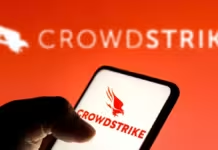How the New ICT are Changing Our Reality
“Only words count and the rest is mere chattering”
Ionesco
Political developments in Europe and the world, such as the recent US elections or the victory of pro-Brexit supporters, are not only the result of changes in the ongoing political power relations or of the weakening of the predominant neo-liberal ideology. They also reflect deeper civilizational changes in the functioning of modern societies, brought on by the information and communications technology (ICT) revolution. One of the fundamental phenomena of our time is the gradual retreat of the culture of the written word (written culture) in face of the increasing domination of what we can call an oral or verbal-visual civilization (VV).
 E-mails, tweets and uploaded photos on Facebook or Instagram are an important, new way of communication among individuals and groups (social networks), much more similar to oral than to written culture. There is a huge difference between an e-mail and a classical letter, let alone an essay or a book. Despite their written form, e-mails are, in most cases, in fact, oral messages by tone and structure. Tweets or Facebook messages are even further away from the written culture; they are a rather short form of oral comments or impressions, expressed by a few hundred symbols or pictures. The first stage of the electronic revolution ensued after the invention of the radio, TV and PCs; the appearance of the Internet, cell phones and social networks corroborates that a new, verbal-visual electronic civilization has been created.
E-mails, tweets and uploaded photos on Facebook or Instagram are an important, new way of communication among individuals and groups (social networks), much more similar to oral than to written culture. There is a huge difference between an e-mail and a classical letter, let alone an essay or a book. Despite their written form, e-mails are, in most cases, in fact, oral messages by tone and structure. Tweets or Facebook messages are even further away from the written culture; they are a rather short form of oral comments or impressions, expressed by a few hundred symbols or pictures. The first stage of the electronic revolution ensued after the invention of the radio, TV and PCs; the appearance of the Internet, cell phones and social networks corroborates that a new, verbal-visual electronic civilization has been created.
Oral civilization and written culture are not necessarily strictly separated, either temporally or physically. They sometimes coexist in society, but are present in varying degrees in different social groups, generations, classes or regions. All of us have, for example, passed through a period of an exclusively oral culture, before we learned to read and write.
The written culture, based on written records/books, has not been part of human history for long. Civilizations founded on written (religious, legal, etc.) records first appeared with the ancient Egyptians and the Jews (Torah, Bible), reaching their pre-Gutenberg peak during the Roman Empire (Cicero, Roman law). The oral culture of knights and serfs ensued in the Middle Ages. The culture of literacy prevailed in modern societies with the arrival of the Renaissance and the invention of the printing press (the Gutenberg Galaxy). The Age of Enlightenment or the Republic of Letters was the culmination of a literate society believing in the rule of man, science and reason, focusing on the educated individual, respecting human rights and guaranteeing economic freedoms and civil equality. A society advocating the principles of tolerance and social contract and based on the written word – legal acts such as Constitutions and laws – and on ideologically associated groups-parties. Literature in the Age of Enlightenment was marked by the advent and rise of the novel, a longer form that can be read by the educated, the counterpart of heroic poems (odes) in oral culture. Mass literacy campaigns, the proliferation of schools, general military service and the democratization of politics led to modern nationalism and the creation of nation states. Today’s liberal democracy is the political legacy of the Age of Enlightenment.
The rise of the oral, verbal-visual civilization also entails the appearance of a new political culture gradually abandoning the achievements of the written civilization during the Age of Enlightenment. Oral civilization stems from primitive cultures and barbaric states without written language. It thrived culturally and politically in ancient Greece, before Plato and Aristotle (neither Pericles nor Socrates wrote anything down) and, again, in medieval societies, in which those who knew how to read and write belonged to a separate religious caste/elite, disassociated from the majority of the (illiterate) society. Mussolini’s Fascism was, in a way, a more recent political predecessor of today’s oral civilization, since it, too, was based on the power of the spoken (rather than the written) word, yelling and gesturing, the leader’s relationship with the masses, return to tradition, politics as action, the will of the leader being above all written law, the rejection of the critical spirit, as well as on emotions, such as feelings of humiliation or revolt.
The oncoming verbal-visual civilization is bringing about changes in politics, art, education and organization of society. It is a new phenomenon although some of its aspects can be compared with former oral cultures. The new oral culture encourages short verbal forms (similarly to poetry, especially Haiku), appreciates emotional reactions and fosters sensation-based values. Like in pre-literacy magic societies, images and music, rather than written language and literature, are the mainstays of culture in the VV civilization. Instead of cherishing the individual and/or reason, the VV civilization worships and venerates ephemeral idols (such as pop-stars, actors, models etc.).
The main difference between the VV civilization and prior cultures arises from their attitudes towards time. Time is drastically condensed in the VV civilization, it is concentrated in the ‘instant present’. The past as such becomes irrelevant and the future is something that is constantly and frenetically being subsumed into the present. Everything within the VV instant culture must happen “now and immediately”. The VV civilization is defined by the mobility, extroversion and hyper-communicativeness of the Internet groups, just as the classical written culture is associated with a predominantly pensive and introspective life and search for identity. The VV oral culture is exhibiting diminishing ability to foster critique and rationality. The huge increase in accessible information in the Internet civilization is most often inversely proportional to time spent on using or seriously analyzing it.
As opposed to the civilization of books, the VV civilization does not encourage the general education and extensive knowledge of the population; rather, it satisfies itself with narrower and specialized knowledge (remember the Bologna reform?), while the intellectual elites (scientists and other experts) are surviving in parallel, mostly disassociated from society. Just like the medieval monks/scholars or Mandarins in China, these elites will at one point probably be the only ones capable of maintaining the bridge between the modern and former cultures, because they will be the only ones able to read and interpret what the civilization of books left to posterity.
Revival of faith in the spoken word and the ebbing of critical rationalism underlie the processes resulting in the emergence of new forms of populism. The VV civilization is introducing new ways of creating political movements and of disseminating and transferring influence, power and authority. In the oral culture, power is based on sending and receiving emotion-charged messages, words or images (via radio, TV, commercials, tweets, tabloids, etc.) rather than by elaborating the presented ideas in writing (in books, programs, pamphlets). The feelings of distance between the leaders and their followers are diminishing in the Twitter world: the leaders’ tweets are personally addressed to all those in their groups. Symbolically speaking, information is conveyed ‘by word of mouth or image’, rather than as a rationalized thought. Virtual reality diminishes capacity for objective analysis. The accuracy of the information is based on the trust between the sender and the receiver, not on facts. The emotional and the rational blend. Politics as a confrontation of ideas is substituted by politics as a “game”. Neither the leaders nor their followers espouse long-term political stands or serious ideologies; they change sides and positions depending on the circumstances, like in a video game. Political rivalries in the VV culture are won by those who best convey their emotion-charged views (enthusiasm, frustration, sincerity, rage, anger or pride) or introduce a new style into the ever-shifting “game” to attract and “entertain” their followers.
The VV civilization may lay the grounds for the return of a non-elite, anti-elite, or anti-intellectual democracy, such as the one in ancient Greece (where the overly popular members of society, like Socrates, were exiled or executed) or in Fascism. The future of the VV civilization may be a combination of the features of a barbaric civilization before the written word, of Greek direct democracy (in the form of a virtual ‘click’ democracy) and a form of authoritarianism (a soft form of Mussolini’s Fascism). However, the rise of the VV civilization need not necessarily mean the end of the Enlightenment and all its achievements, from human rights to the rule of law.
We can also imagine a form of VV society in which political struggle and transmission of power will be dominated by a populist verbal-visual electronic-referendum-like democracy blended with despotism, while the civil law, status-related orders will remain under the control of a ‘quasi-Mandarin’ elite (courts, higher administration), as the continuator and last heir of the liberal Enlightenment ideals of the Gutenberg Galaxy period. Specific signs of this dualism have already appeared in Western political systems, from the USA to the EU. It remains to be seen what fate has in store for the European Union – this contemporary political offspring of the Enlightenment movement – in these new populistic circumstances.
http://www.emins.org/english/news/article/the-rise-of-twitter-civilization-and-the-end-of-enlightment
Author: Duško Lopandić







